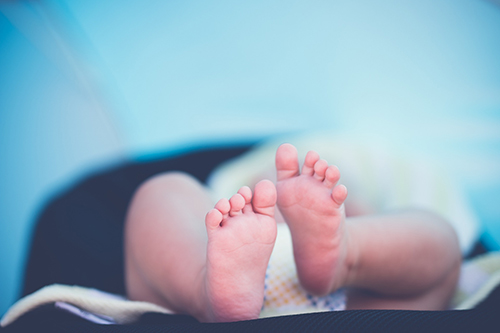Unexplained Infant Deaths Live In The Most Deprived Neighbourhoods- University Of Bristol Study
The NCMD thematic report Sudden and unexpected deaths in infancy and childhood, published last week [8 December], uses unique and comprehensive data on child deaths in England to examine how neonatal health affects child mortality. It looks at deaths reported to the database on all children who died suddenly and unexpectedly after birth and before their 18th birthday from 1 April 2019 to 31 March 2021, but also deaths reviewed by professionals within that period to draw out the insights and lessons from every case.
The report shows many infant and child deaths are sudden and unexplained. Of all the 6,503 infant and child deaths that occurred between April 2019 and March 2021 in England, 30% (1,924) happened suddenly and unexpectedly, and of these 64% (1,234) had no immediately apparent cause. Less than half of these were ultimately explained, even with a detailed review.
Unexplained deaths were strongly associated with particular circumstances, including low birthweight, prematurity, multiple births, larger families, admission to a neonatal unit, maternal smoking during pregnancy, young maternal age, parental smoking and parental drug misuse.
The unexplained deaths were also associated with particular sleeping arrangements. 98% (124 out of 127) of unexplained deaths took place when the infant was thought to be asleep, and of those, 52% (64 out of 124) of deaths occurred while the sleeping surface was shared with an adult or older sibling. Of these 64 deaths, 60% were associated with unplanned sharing and at least 92% were in hazardous circumstances e.g. co-sleeping with an adult who had consumed alcohol or on a sofa.
Deaths of children who die suddenly at 12 months of age or older, and whose deaths remain unexplained, are not well understood, and the sleep related risk factors for infant deaths due to “sudden infant death syndrome” or SIDS do not apply. However, there is evidence to suggest an association with febrile seizures in this age group, with a higher proportion of families reporting a history of febrile seizures than is known to occur in the general population.
Karen Luyt, Professor in Neonatal Medicine at the University of Bristol, NCMD programme lead and the report’s senior author, said: “When a child dies suddenly and unexpectedly, it represents a devastating loss for the parents, wider family and the child’s whole community. The figures detailed in this report represent precious lives lost and many families who endure the life-long impact of the lack of an explanation for why their child died.
“The findings and learning from the report will inform policies and interventions required to reduce the number of children who die, and recommendations will be made based on the findings.”
Baroness Helena Kennedy KC, Honorary Fellow of the Royal College of Paediatrics and Child Health, who wrote the foreword for the report, added: “Every child’s death is a tragedy and when a child dies suddenly the family desperately needs to know what happened.
“This report is unique in two ways. It is the first national report to have investigated all unexpected deaths of infants and children – not just those that remained unexplained. And it is also the first national review of the “multi-agency investigation process” into unexpected deaths.
“One striking finding is that in the unexpected deaths of children between one and 17 years old there is a high incidence of a family history of convulsions. Inexplicably it is as strong for those children whose deaths are fully explained by an underlying medical condition as for those whose death remains unexplained.
“What this tells us is that research in this area is now a priority. It is crucial that we identify those factors which contribute to unexpected death in children over one year old.”
While these findings demonstrate that we can better understand and derive learning if we pool information, it is important to recognise that no two deaths are the same. The authors of this report wish to acknowledge that the death of each child is a devastating loss that profoundly affects bereaved parents as well as siblings, grandparents, extended family members, friends and professionals. They also wish to thank all the families who shared their data and experiences, and the Child Death Overview Panels who submit detailed evidence on every death to the database.

